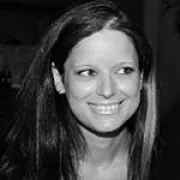I’m creating my own universe within an existing reality and reshaping it to reflect how I was feeling at the time.
Ever since its invention in the 19th century, photography has documented life. At the same time, it focuses on inviting audiences to a rather subjective world while trying to be taken seriously as an art form. Photography has always been considered a male-dominated profession, but luckily, things are changing. Scholars, writers, bloggers, photography students, and enthusiasts have been giving credit to the female pioneers of the field. Most were always standing and/or hiding in the shadows, oblivious to how much they could claim and accomplish. Arguably, the techniques, concepts, and themes female photographers use differ from those of male photographers. At a time when most women were convinced that their place was in the kitchen and certainly not in the dark room, some were struggling to surpass their male counterparts and work towards gaining respect and recognition for their work.

Aida Muluneh (Ethiopian photographer, educator, and entrepreneur, 1974-) was born in Addis Ababa, but left Ethiopia at a young age and grew up between Yemen and England, later spending time in Cyprus and Canada. She then graduated from Howard University in Washington, D.C., with a degree in Communications, majoring in Film.
Her photography has been widely published and is included in the permanent collections of prestigious institutions such as the Museum of Modern Art (MoMA), the Smithsonian's National Museum of African Art, the Hood Museum, the RISD Museum of Art, and the Museum of Biblical Art in the United States. Muluneh received the European Union Prize at the Rencontres Africaines de la Photographie in Bamako, Mali, in 2007, the CRAF International Award of Photography in Spilimbergo, Italy, in 2010, and was a CatchLight Fellow in San Francisco, USA, in 2018. In 2020, she was honoured with the Royal Photographic Society Award in Curatorship. In 2019, Muluneh became the first black woman to co-curate the Nobel Peace Prize exhibition and returned the following year as a commissioned artist for the prize. Her commissioned projects use creativity to educate and advocate on topics related to the environment and health.
Her work has been exhibited globally and published in key publications worldwide. As a leader in her field, she has been recognized as a change-maker in Africa, shifting perceptions of the continent. Aida is deeply committed to advocating for the development of photography in Africa through her educational programs across the continent. She is the founder of Addis Foto Fest (AFF), the first international photography festival in East Africa, held since 2010 in Addis Ababa, and the Africa Foto Fair, established in 2022 in Côte d'Ivoire. The Africa Foto Fair is both an exhibition and a virtual publication that brings emerging and established talents to the global photography community.
Additionally, Muluneh established the Africa Print House, which offers fine art photography printing through her studio in Abidjan - a creative space that provides end-to-end solutions for photographers in Africa. As an educator and cultural entrepreneur, she continues to develop projects with local and international institutions in Ethiopia and Côte d'Ivoire.
She creates vibrant photographs that highlight her national, political, and cultural identity. Through the use of metaphor, she creates vignettes that poetically portray facets of her experiences as an Ethiopian woman and immigrant.

Vision without action is merely a dream; action without vision just passes time. Vision with action can change the world.

We will continue talking about female names that left their mark on photography and about contemporary female photographers who are still emerging. There are a lot of female photographers out there deserving of praise, and we can only hope to cover as many of them as we can. Please follow this space to find out more.







